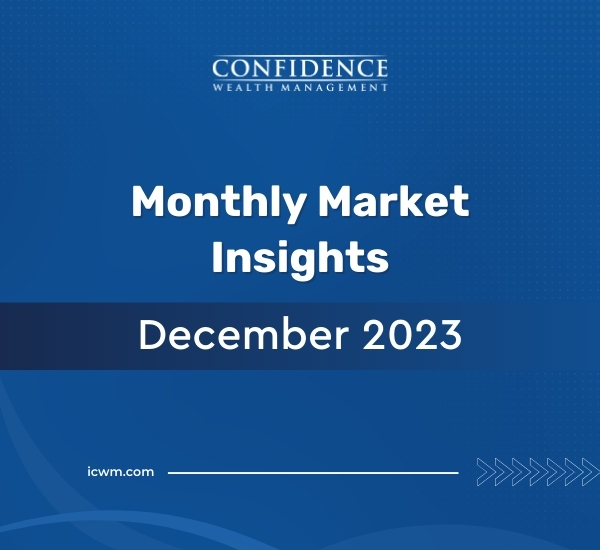Investing has never been more important, more in vogue, and more treacherous.
It seems like everyone has their ideas about what works and what doesn’t in the markets, and with so much riding on your savings doing well, it’s easy to feel lost or go astray.
I manage investments and advise clients about them every day. In my time, I’ve learned that it takes self-discipline to survive and thrive in the markets, but it also takes a principled approach.
While trends and technology change constantly, the attributes that make for a successful investor remain timeless. These are principles I’ve learned that I use myself and that I share with my clients. I offer them here to help you in your investing journey so you can weather the times ahead and hopefully grow your wealth.
Here are eight timeless principles of investing.
Focus On What You Can Control
The market moves up and down, sometimes at a dizzying pace. Politics can turn scary or dangerous. Interest rates and economic events can seem impossible to predict. So instead of worrying about all of these things and other factors that are out of your control, focus your energy and attention on what is.
Start by building an investment strategy that reflects your goals, time horizon, and risk tolerance. Any plan is better than no plan at all.
Diversify – but remember diversification is an approach to help manage investment risk. It does not eliminate the risk of loss if security prices decline.
Manage your tax situation. Know where you stand so you avoid surprises.
Make Time Your Ally
The financial markets reward long-term investors and punish dilettantes. Research and experience have borne this out.
Keep in mind, though, that past performance does not guarantee future results and individuals can’t invest directly in an index. Even so, remember that time in the market beats timing the market.
Tune Out the Noise
The media makes money on a news cycle driven by fear, uncertainty, and doubt. That cycle can challenge even the most disciplined investor.
Some stories spark anxiety, while others try to goad you into chasing the hottest fads and trends. We live in an era of seemingly infinite data, and information overload can cause you to lose track of what’s important.
Pick your news diet carefully, and regulate what you give your attention to. Remember why you invested in the first place and track how that thesis is holding up, not what a talking head on CNBC might be saying about the central bank’s most recent policy change.
Don’t Try to Time the Markets
Market timing is the strategy of trying to predict future market movements to time buying and selling decisions. When markets are rallying or pulling back, it can be very tempting to try to seek out the top to sell or the bottom to buy. The problem is that investors usually guess wrong.
Trying to time it just right can mean you miss out on the best market days or buy into the very worst. Focus on time in the markets instead. This gives you a better chance to ride out the natural market cycles and focus on your long-term goals.
Understand All Forms of Risk
Market risk – or the risk of your portfolio losing value due to factors such as changing market conditions – isn’t the only type of risk to be concerned about.
Personal risk, such as longer lifespans and rising healthcare costs, means that Americans need to consider a variety of factors as they prepare for retirement. Understanding risk as it relates to your time horizon and investing goals is critical to a financial strategy.
Avoiding risks you can predict and ones you can’t is why it’s so important to determine your time horizon, learn to be patient rather than reactive, and start early.
Understanding your time horizon allows you to determine what type of investments may fit your overall strategy while learning patience teaches you to focus on managing your emotions rather than making changes to your portfolio during volatile times.
Starting early gives you greater compounding potential and the ability to weather downturns with grace.
Avoid the Emotional Roller Coaster
Emotional decision-making can lead to making the wrong decision at the wrong time.
A Dalbar study found that while the S&P 500 returned 9.85% for the 20 years ending in 2015, the average investor fared worse, seeing a return of only 5.19% during the same period.
Emotional decision-making was one of the factors. It’s the fear that motivates you to sell when you should hold or the fear of missing out that inspires you to buy when you should sell.
Create a game plan and stick to it rather than using your fickle emotions to dictate your strategy to you.
The Cost of Procrastination
The sooner you begin investing, the longer your money can work for you.
Let’s look at two hypothetical investors, Sally Starts and Dave Delays.
When Sally turns 50, she starts contributing $25,000 a year to an account that earns a hypothetical 6%. After 10 years, she stops making payments.
Dave puts off his investing program. At age 60, he begins setting aside $25,000 a year into an account that earns a hypothetical 6%.
Though both have contributed equal amounts, Sally has the magic of compound interest working for her. When they both reach age 70, Sally’s account balance is near twice the size of Dave’s.
The lesson is simple: start as soon as possible.
Delegate the Details
When people have a problem with their plumbing, they hire a plumber. That’s because it’s too important to figure it all out on their own. They’d rather pay an expert to handle it and spend their valuable time and attention elsewhere.
The same goes for managing your investments.
Financial professionals may help you create a customized portfolio strategy that’s built around your unique goals.
Though we can’t control markets, we can help you use them to pursue your long-term financial goals.
As experienced financial professionals, we are here to help you overcome the obstacles that investors often face so you can focus your attention elsewhere and keep peace of mind.
Please contact us and let us help you achieve your ideal retirement. We would be delighted to go on the journey with you.









